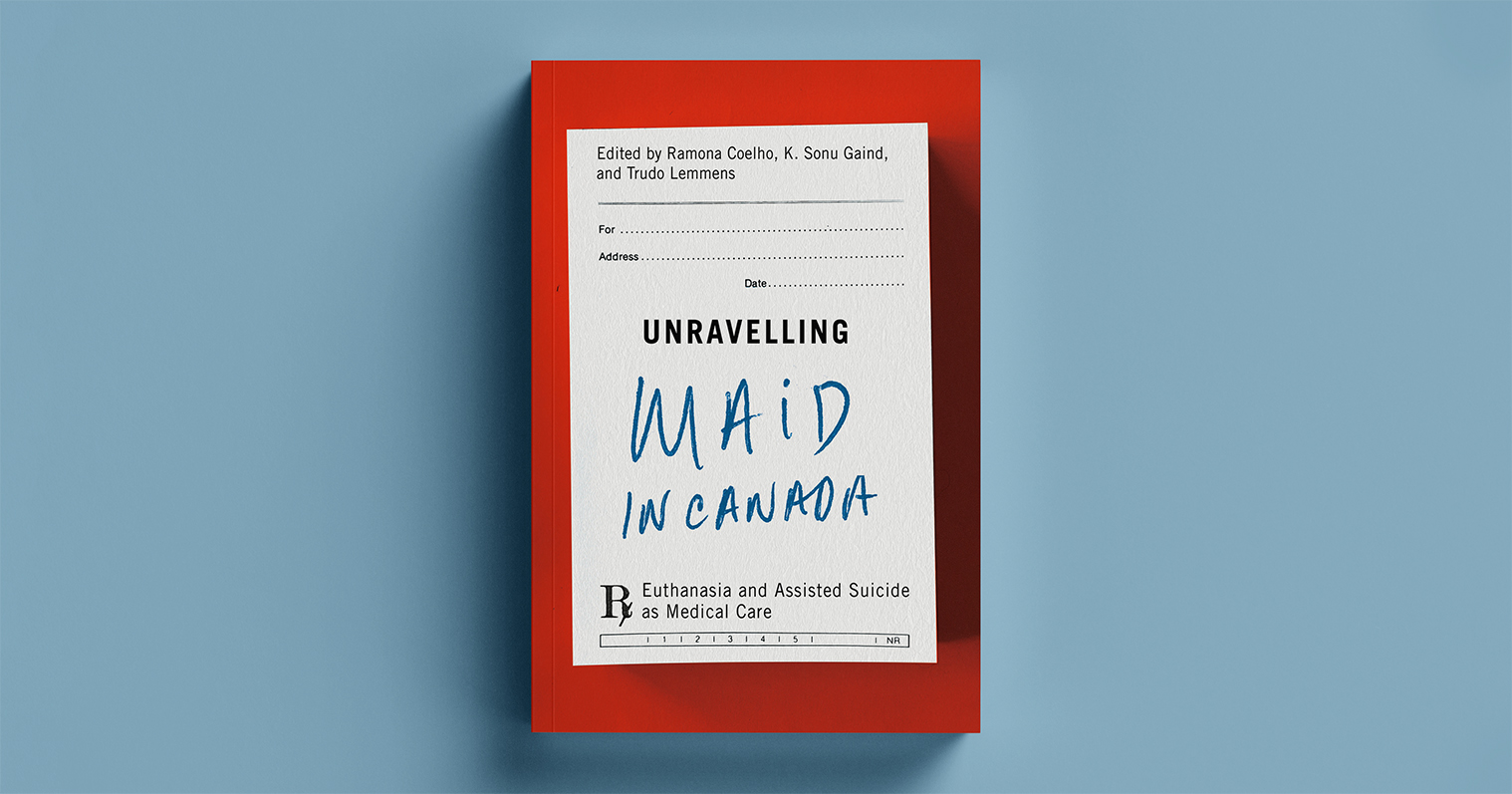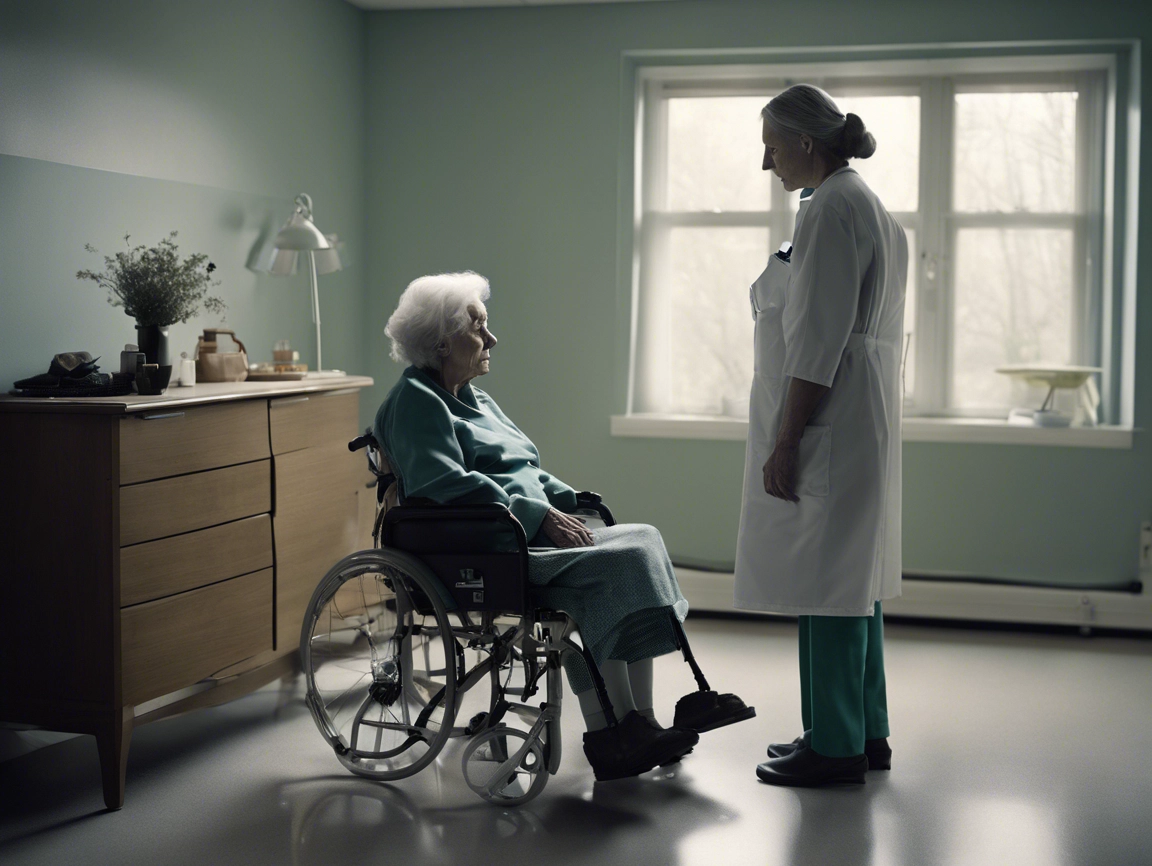
A Tale of Two Visions: Euthanasia and Palliative Care
Of 32 non-profit Palliative Care centres scattered around the province of Quebec, even under intense economic and political pressure, only 6 currently allow euthanasia within their walls.
Doctors who promote euthanasia consider this low participation rate as a barrier to the fulfillment of patients’ wishes. Many of them, despite self-identifying as Palliative Care physicians, see no problems with cohabitation: they claim to do both Palliative Care and euthanasia; they promise they will always continue Palliative Care as long as the patient obstinately maintains his or her will to live; and when that patient finally becomes reasonable they will – in perfect “continuity of care” — perform the euthanasia which they believed to be indicated all along.Continue reading editorial…
Make euthanasia unimaginable.
Sincerely,
Catherine Ferrier
President
Doctor’s voices
- Why I Will Be A Conscientious Objector To Victoria’s Assisted Dying Law. A palliative care specialist laments the unrealistic individualism and elitism of the euthanasia movement.
- New draft guidance from the British Medical Association will enable doctors to dehydrate and sedate to death large numbers of non-dying patients with dementia, stroke or brain damage. Peter Saunders provides a thought-provoking reflection on the ramifications of this new protocol.
Call to action
- Vivre dans le Dignité invites us all to accept our civic responsibility in the Quebec elections 2018 on October 1st, and vote for access to quality palliative care.
In the news
- Regulations for the Monitoring of Medical Assistance in Dying were issued recently by the Canadian Minister of Health, Mme Petitpas Taylor. (Review and Commentary by the Physicians’ Alliance to follow).
- World Medical Association (WMA) to consider policy changes on euthanasia and assisted suicide. An “open debate” on changing the Association’s policy against physician participation in euthanasia and assisted suicide, which will take place during the WMA conference on medical ethics taking place in Reykjavik, Iceland, from October 2-4th, 2018.
- Some interesting results from the Conservative Party congress 2018:
Among the positive resolutions voted in plenary:- To oppose the extension of euthanasia and assisted suicide to minors, non-competent persons and mentally ill persons. 62% compared to 38%.
- Develop a national palliative care strategy to provide quick and equitable access to palliative care across Canada that supports life, considers death to be a normal process and excludes euthanasia and assisted suicide.
If you have an article, letter or interview relevant to our work published in any media, please let us know at info@collectifmedecins.org.
From the trenches
- Protection of Conscience Project Submission to the Canadian Medical Association Re: 2018 Revision of the CMA Code of Ethics
The project draws attention to many inconsistences between the revision and prior CMA policy. - They shoot horses, don’t they? A compelling, brief analysis provided by Michael Cook on the high stress of euthanizing animals that drives some vets to suicide. He questions what would happen to euthanasia doctors?
- Communication is Key by Barbara Collier, Anne Abbott and Hazel Self. In a recent blog post, the Advisors to the Vulnerable Persons Standard (VPS) underlined their concern that without clearly established guidelines to ensure reliable and authentic communication with respect to Medical Assistance in Dying (MAiD), especially for patients who have disabilities that affect their communication.
Resources
- The new website of the (Société québécoise des médecins de soins palliatifs, SQMDSP) has been launched: https://www.sqmdsp.com
Events
- 22nd International Congress on Palliative Care. October 2-5, 2018. Presented by Palliative Care McGill, McGill University. Registrations are currently underway. Early bird rates are available until August 1st, 2018.
- The World Medical Association (WMA) Medical Ethics Conference will be held from the 2nd to the 4th of October 2018, prior to the WMA General Assembly (October 3rd-6th, 2018) in Reykjavik, Iceland. Registration is currently open.
- August 15th, 2018 – Deadline for submission of abstracts
- August 15th, 2018 – Last day for early bird fee registrations
In the literature
- Ethics & Medicine, Vol. 34, No. 2, Summer 2018. Can euthanasia be classified as a medically beneficial treatment? by Gamble and Nathan. The authors point out that the research on new medical interventions is expected to be evidence based. However, there is currently there is no scientific evidence for the benefit of euthanasia.
- Theoretical Medicine and Bioethics, August 2018. The last low whispers of our dead: when is it ethically justifiable to render a patient unconscious until death? by Sulmasy, D. This article distinguishes and evaluates the implications of three types of clinically and ethically-distinct practices: (1) double-effect sedation, (2) parsimonious direct sedation, and (3) sedation to unconsciousness and death.
- JAMA Psychiatry. Published online on August 8, 2018.Suicide and Physician-Assisted Death for Persons With Psychiatric Disorders How Much Overlap? by Kim, S., Conwell, Y and Caine, E. Physician-assisted death (PAD) of persons in which psychiatric disorders are the basis for the procedure (psychiatric PAD) remains infrequent but rising in number in Belgium and the Netherlands where it is legal, comprising about 1% to 2% of PAD…. Canada’s euthanasia law generally excludes psychiatric PAD, but there are court challenges to expand the law.
If you come across articles that could be of interest to colleagues in the Alliance please send the reference to info@collectifmedecins.org.
SUPPORT OUR EFFORTS so that we can continue to speak on your behalf:
Increase our media impact:
- Invite your entourage to become a supporter of the Physicians’ Alliance >>
- Invite your entourage to follow us on Twitter >>
- Invite your entourage to like our Facebook page >>
- Invite your entourage to subscribe to our Youtube channel >>


